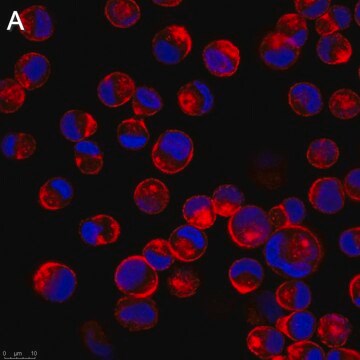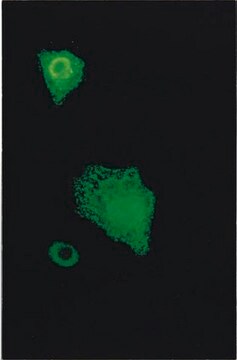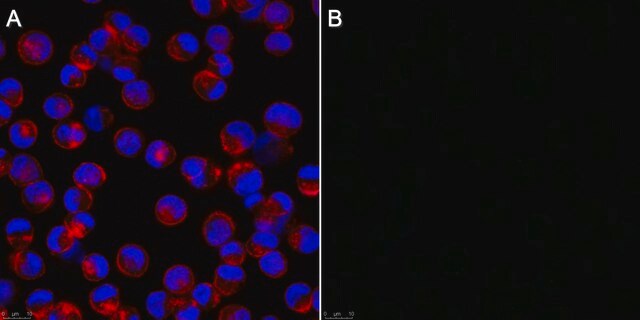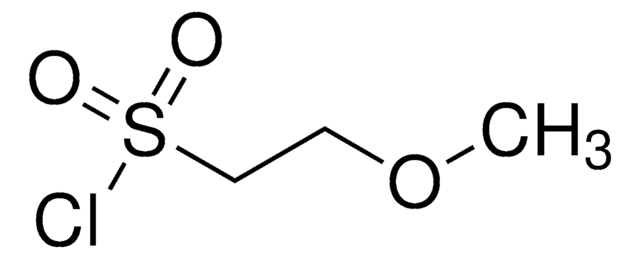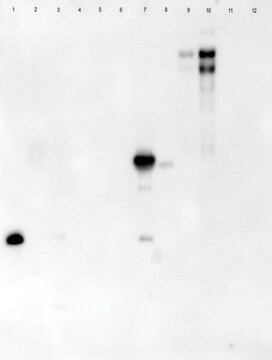MAB8258B
Anti-Influenza A Antibody, nucleoprotein, clone A3, biotin-conjugated
clone A3, Chemicon®, from mouse
Sign Into View Organizational & Contract Pricing
All Photos(1)
About This Item
UNSPSC Code:
12352203
eCl@ss:
32160702
NACRES:
NA.41
Recommended Products
biological source
mouse
Quality Level
conjugate
biotin conjugate
antibody form
purified immunoglobulin
antibody product type
primary antibodies
clone
A3, monoclonal
species reactivity
human
manufacturer/tradename
Chemicon®
technique(s)
immunofluorescence: suitable
isotype
IgG1
shipped in
wet ice
Specificity
Specific for the Influenza A nucleoprotein. Has stronger binding with N2/N3 type Flu A. No cross reactivity seen to influenza B or other respiratory viruses.
Immunogen
Epitope: nucleoprotein
Influenza A
Application
Indirect Immunofluorescence
Optimal dilutions must be determined by end user.
Optimal dilutions must be determined by end user.
Research Category
Infectious Diseases
Infectious Diseases
Research Sub Category
Infectious Diseases - Viral
Infectious Diseases - Viral
This Anti-Influenza A Antibody, nucleoprotein, clone A3, biotin-conjugated is validated for use in IF for the detection of Influenza A.
Physical form
Biotin conjugated purified immunoglobulin. Liquid in 0.01M PBS, pH=7.1, 0.1% Sodium Azide with 15 mg/mL BSA as stabilizer.
Storage and Stability
Maintain at 2 to 8°C for up to 12 months from date of receipt. Protect from Light.
Other Notes
Concentration: Please refer to the Certificate of Analysis for the lot-specific concentration.
Legal Information
CHEMICON is a registered trademark of Merck KGaA, Darmstadt, Germany
Disclaimer
Unless otherwise stated in our catalog or other company documentation accompanying the product(s), our products are intended for research use only and are not to be used for any other purpose, which includes but is not limited to, unauthorized commercial uses, in vitro diagnostic uses, ex vivo or in vivo therapeutic uses or any type of consumption or application to humans or animals.
Not finding the right product?
Try our Product Selector Tool.
Storage Class Code
12 - Non Combustible Liquids
WGK
WGK 2
Flash Point(F)
Not applicable
Flash Point(C)
Not applicable
Certificates of Analysis (COA)
Search for Certificates of Analysis (COA) by entering the products Lot/Batch Number. Lot and Batch Numbers can be found on a product’s label following the words ‘Lot’ or ‘Batch’.
Already Own This Product?
Find documentation for the products that you have recently purchased in the Document Library.
Detection of influenza A and B neutralizing antibodies in vaccinated ferrets and macaques using specific biotin-streptavidin conjugated antibodies.
Danylo Sirskyj,Richard Weltzin,Ashkan Golshani,David Anderson,Jasminka Bozic et al.
Journal of Virological Methods null
Jérémie Le Pen et al.
Nature structural & molecular biology, 25(9), 778-786 (2018-08-15)
RNA viruses are a major threat to animals and plants. RNA interference (RNAi) and the interferon response provide innate antiviral defense against RNA viruses. Here, we performed a large-scale screen using Caenorhabditis elegans and its natural pathogen the Orsay virus
Sarah F Andrews et al.
Science immunology, 2(13) (2017-08-08)
Antigenic drift and shift of influenza strains underscore the need for broadly protective influenza vaccines. One strategy is to design immunogens that elicit B cell responses against conserved epitopes on the hemagglutinin (HA) stem. To better understand the elicitation of
Eda K Holl et al.
Proceedings of the National Academy of Sciences of the United States of America, 113(35), 9728-9733 (2016-08-17)
Nucleic acid-containing debris released from dead and dying cells can be recognized as damage-associated molecular patterns (DAMPs) or pattern-associated molecular patterns (PAMPs) by the innate immune system. Inappropriate activation of the innate immune response can engender pathological inflammation and autoimmune
Graham D Williams et al.
Nature communications, 9(1), 465-465 (2018-02-02)
Influenza A virus nucleoprotein (NP) association with viral RNA (vRNA) is essential for packaging, but the pattern of NP binding to vRNA is unclear. Here we applied photoactivatable ribonucleoside enhanced cross-linking and immunoprecipitation (PAR-CLIP) to assess the native-state of NP-vRNA
Our team of scientists has experience in all areas of research including Life Science, Material Science, Chemical Synthesis, Chromatography, Analytical and many others.
Contact Technical Service
